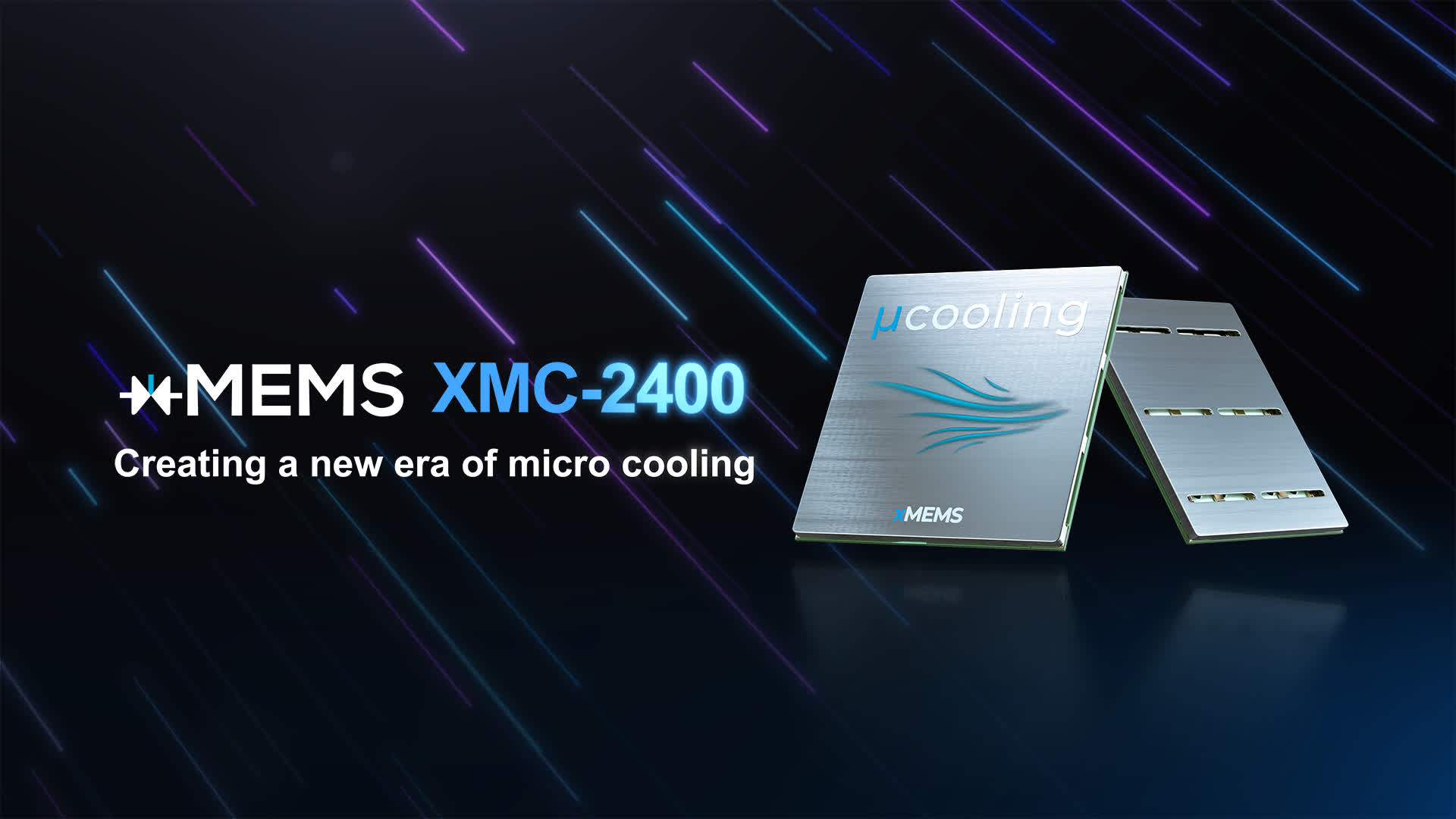In a nutshell: Solid-state active cooling technology is heating up… or rather, cooling down. xMEMS Labs is repurposing its all-silicon, solid-state speaker technology as a tiny fan-on-a-chip to cool a range of compact electronics such as smartphones, tablets, laptops, VR heatsets, SSDs, and more.
The xMEMS XMC-2400 µCooling chip measures just 9.26 x 7.6 x 1.08 millimeters and tips the scales at less than 150 milligrams. According to xMEMS, it's 96 percent smaller and lighter than non-silicon-based, active cooling solutions.
The company claims the XMC-2400 can move up to 39 cubic centimeters of air each second, and generates 1,000 pascals of back pressure. For comparison, the AirJet Mini Slim from Frore Systems – another solid-state cooling solution – generates 1,750 pascals of back pressure.
xMEMS didn't say how much heat it can dissipate. Again, for comparison, the AirJet Mini Slim can remove 5.25 watts of heat at 21 dBA, and consumes just a single watt of power. xMEMS claims the XMC-2400 is inaudible and vibration-free, as all mechanical operation occurs at ultrasonic frequencies, and that it'll consume an estimated 30 mW.

One key difference between the two is size. The AirJet Mini Slim measures 2.5 millimeters thick, but the XMC-2400 is far thinner at just 1.08 millimeters. This means it can be stuffed into much smaller spaces where the AirJet Mini Slim simply wouldn't fit. We also know that it can be oriented for top-vent or side-vent applications.
Additional benefits include "semiconductor" reliability, part-to-part uniformity, and an IP58 rating. What's more, because the cooler is based on the same fabrication process as the company's Cypress full-range micro speaker, manufacturing shouldn't present much of an issue.
Mike Housholder, VP of marketing and business development at xMEMS, isn't ruling out the possibility that the tech could one day be used cool hardware inside of an SoC – perhaps in conjunction with an external cooler.
xMEMS plans to demo the XMC-2400 to select customers and partners in September and send out samples in Q1 2025. Mass production is slated to begin the following quarter at TSMC and Bosch.
Tiny "fan-on-a-chip" introduces solid-state cooling for smartphones and beyond